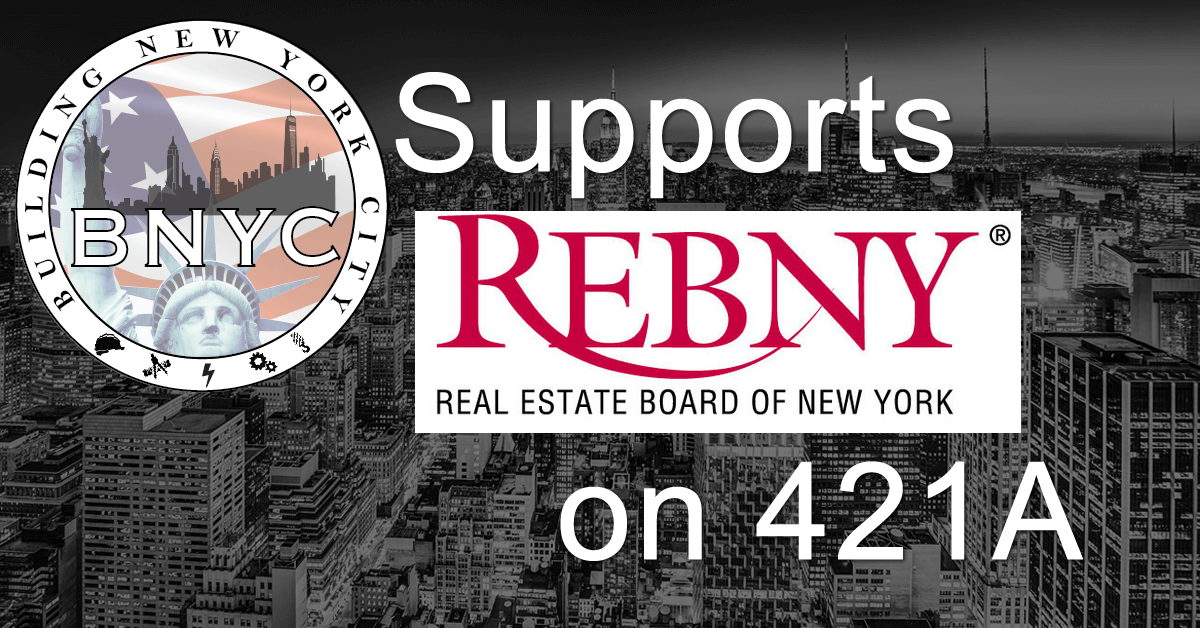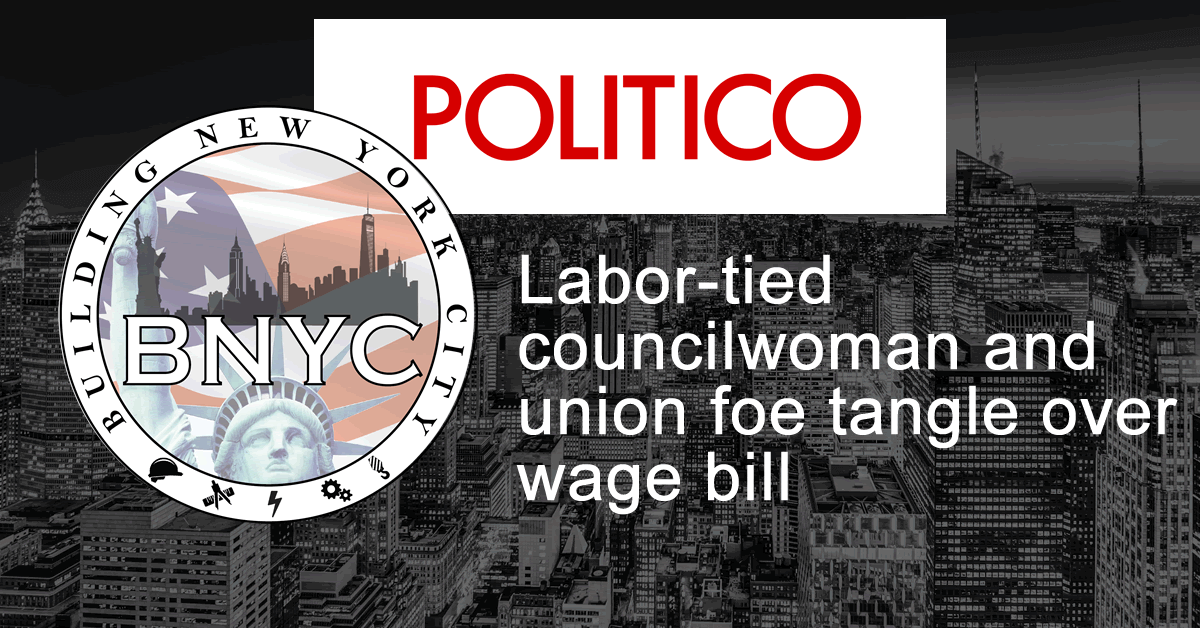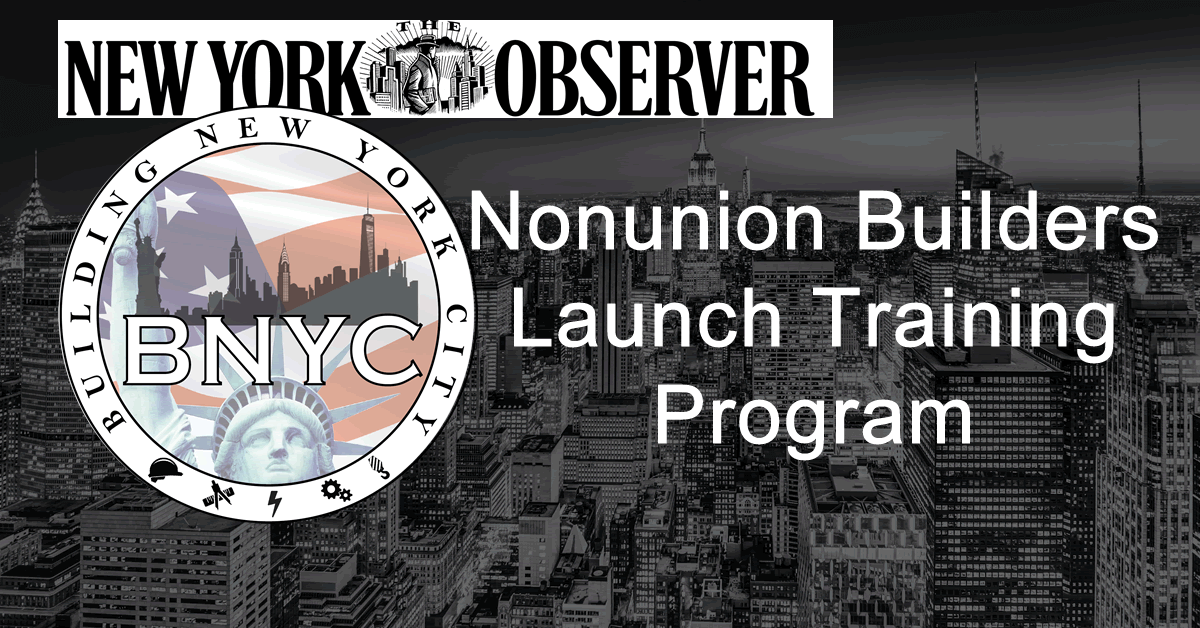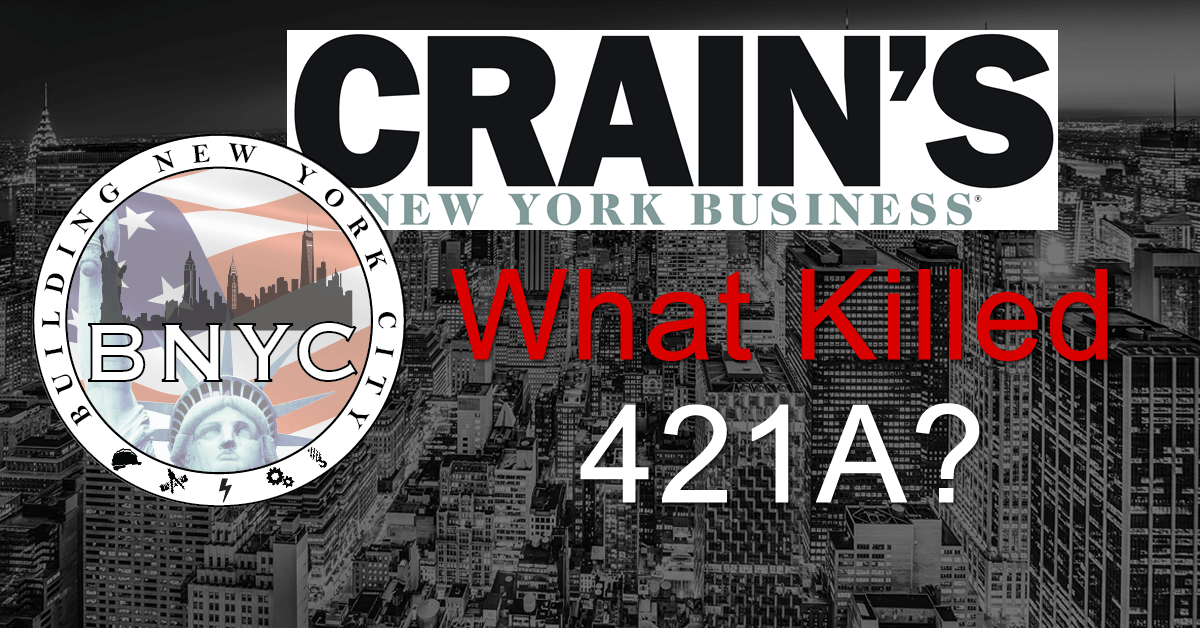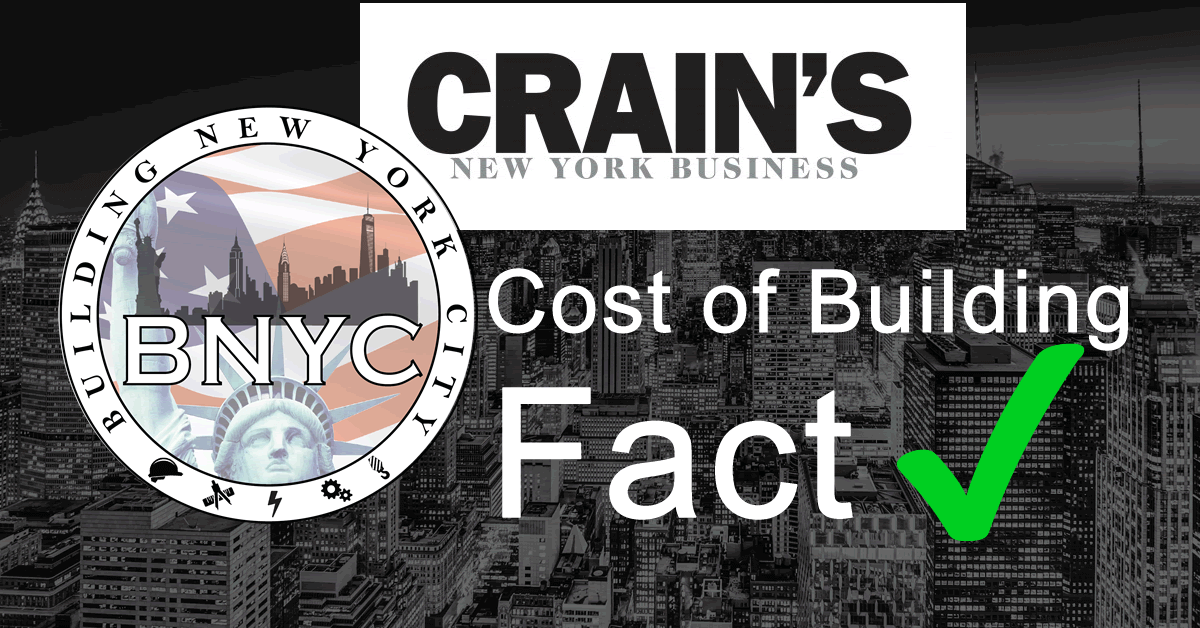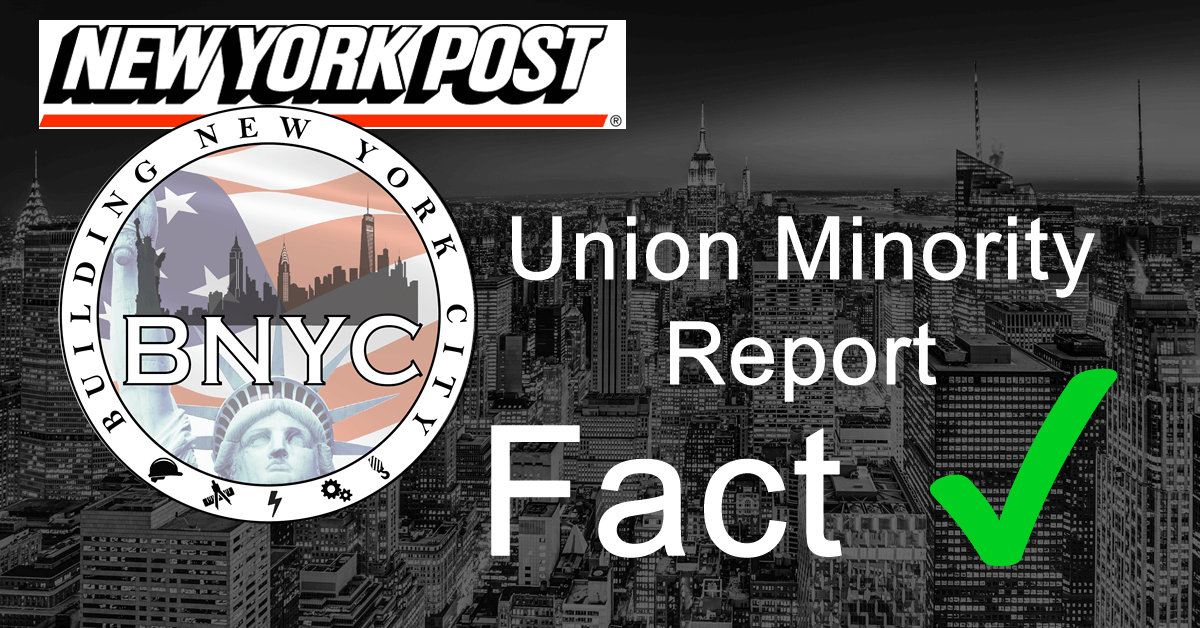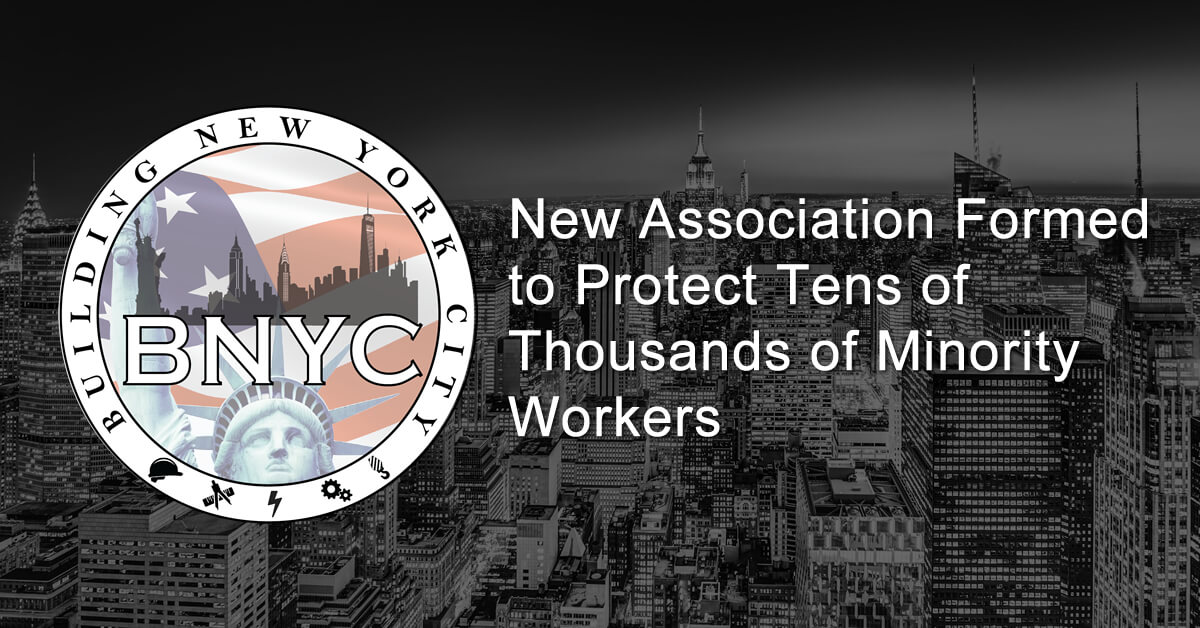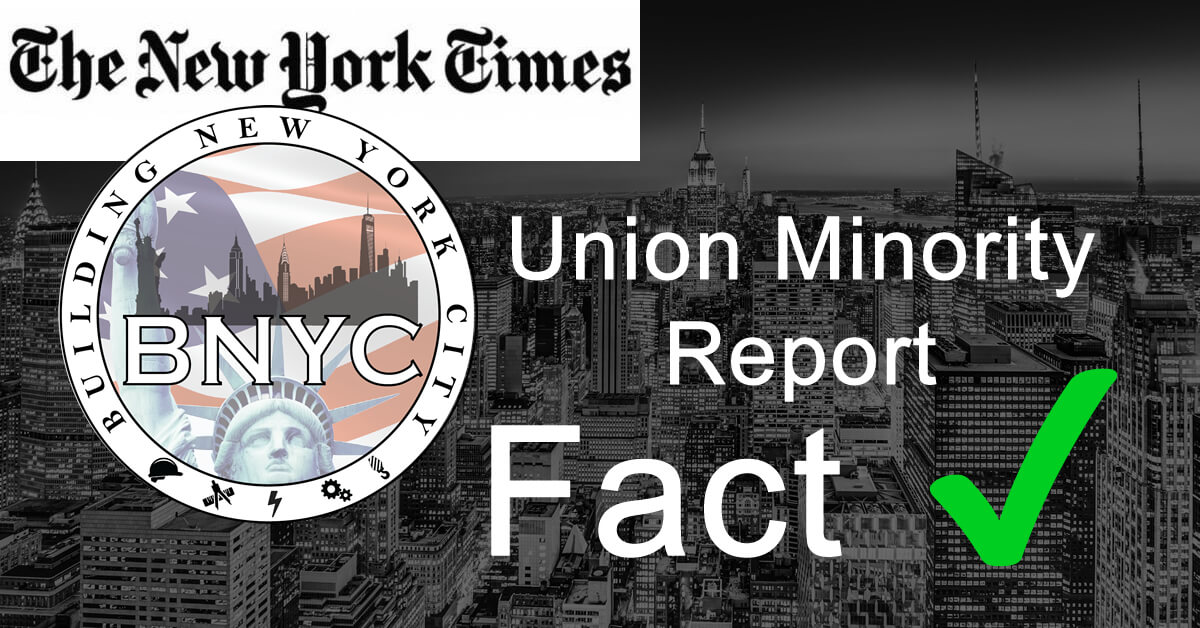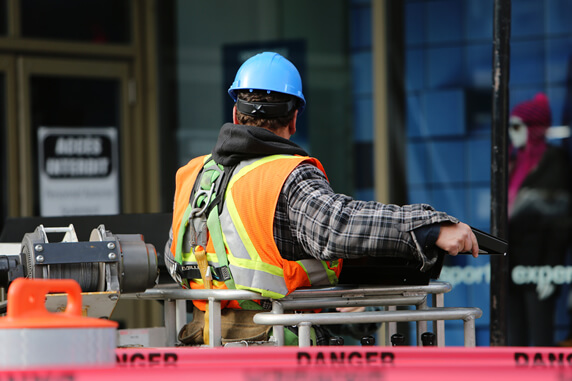 Much of the NYC construction industry is under siege by forces that cling to old patterns of behavior. These forces seek to undermine tens of thousands of minority workers doing the majority of the building in NYC and employing the greatest number of New Yorkers, especially minorities, thereby creating a diverse workforce who for the first time has significant opportunity for stability and longevity. These workers come from New York communities where unemployment exceeds the national average, thousands of whom are minorities who have been historically ignored by stakeholders wedded to an outmoded method of doing business.
Much of the NYC construction industry is under siege by forces that cling to old patterns of behavior. These forces seek to undermine tens of thousands of minority workers doing the majority of the building in NYC and employing the greatest number of New Yorkers, especially minorities, thereby creating a diverse workforce who for the first time has significant opportunity for stability and longevity. These workers come from New York communities where unemployment exceeds the national average, thousands of whom are minorities who have been historically ignored by stakeholders wedded to an outmoded method of doing business.
This vibrant construction sector has been responsible for an upsurge in affordable housing development that has begun to address what the City sees as the most crucial public policy issue that we face in New York. This could not have happened under the old and discredited business model, whose proponents are now understandably lashing out in fear and anger as their market share continues to evaporate.
BuildingNYC is an association that represents those doing the majority of the building in NYC today, especially affordable housing. Comprised of workers across all sectors of the NYC construction industry, we seek to protect and advocate for the right to work in a safe, fair and equitable environment that promotes continued growth and success.
Help us build New York City affordably, with true diversity, safety and fairness.
Join our movement and show your support. We’ll keep you updated on important events and initiatives…
The Real Story About Building NYC is Being Written Every Day:
BNYC Supports REBNY on 421-A
BNYC believes strongly that it is time for the governor to intervene and draft an extension proposal for the vitally needed 412-a program.
Labor-tied councilwoman and union foe tangle over wage bill
A leading opponent of construction unions is demanding that City Councilwoman Elizabeth Crowley return union campaign contributions, saying she is pushing a bill that would directly benefit her donors.
Observer: Amid Spike in Deaths and Spat With Labor, Nonunion Builders Launch Training Program
BuildingNYC, a coalition of 12 “merit-based” developers and contractors, is partnering with the Associated Builders and Contractors, a national federation of nonunion companies whose members provide training in the trades.
Crain’s: What killed 421-a? Old-fashioned protectionism
Key program to produce affordable housing is losing out to myopic and selfish pleading by organized labor
The Real Deal: Just kidding: IBO corrects its 421a report, says prevailing wage requirement would actually cost city $4.2B
From The Real Deal: The Independent Budget Office says it botched a recent report on affordable housing by drastically underestimating the impact of requiring prevailing wages on projects benefiting from the 421a property tax break. [...]
Crains: Union labor for construction is far more expensive than originally estimated
From Crain's New York Business: IBO rechecks its data and says the added burden is a whopping 23% Using union labor to build affordable housing under the mayor's ambitious program will be almost twice as [...]
Introducing BuildingNYC!
BuildingNYC is an association that represents those workers doing the majority of the building in NYC today, especially affordable housing. Comprised of a diverse workforce from across all sectors of the NYC construction industry, we seek to protect and advocate for the right to work in a safe, fair and equitable environment that promotes continued job growth and economic success.
NYT: New York Sheet Metal Workers Case Highlights Persistence of Workplace Discrimination
The union’s white members have received more work and larger pensions, data show. In contrast, minority members, who have lagged for decades, often struggle to find steady jobs and to earn enough credit to retire on time with full pensions.

